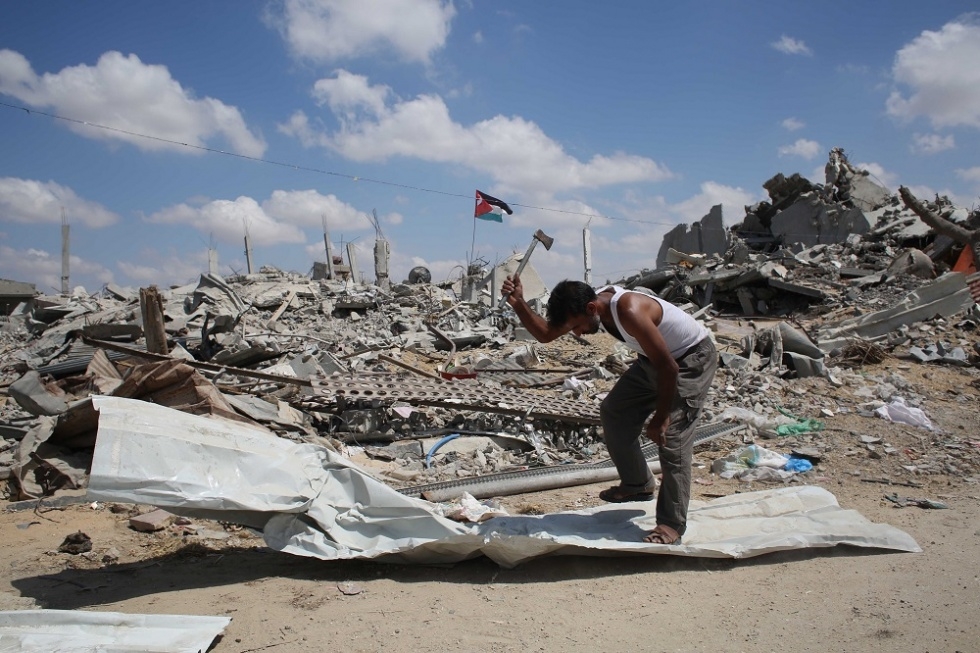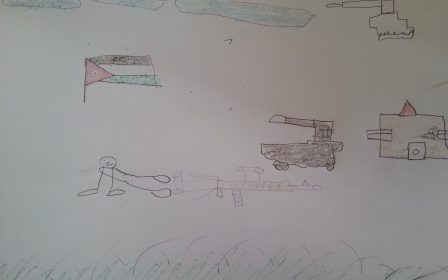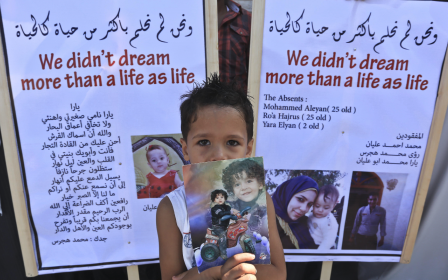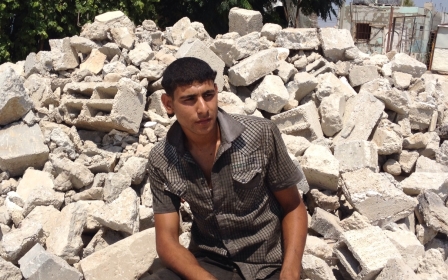Palestinians face crunch talks in Cairo ahead of UN bid

by Nasser Abu Bakr
The Palestinians launch an intensive diplomatic campaign on three fronts this week: tackling internal divisions, resuming truce talks with Israel and making a fresh appeal to the United Nations.
Most of the diplomatic activity will take place in Cairo where representatives of the Hamas and Fatah factions are to gather on Tuesday to address issues blocking the implementation of a reconciliation deal, which was inked in April but is now threatening to collapse.
A day later, a cross-party Palestinian delegation, including Fatah and Hamas, is expected to present a united front in talks with Israel aimed at cementing a ceasefire that took effect on 26 August, ending 50 days of fighting in Gaza.
But in order to negotiate with Israel, internal Palestinian divisions must be put aside and the two sides must agree upon a "unified strategy," officials say.
The unity deal was to have ended years of bitter rivalry between the Fatah faction of president Mahmud Abbas that dominates the West Bank-based Palestinian Authority, and Hamas, which has ruled the Gaza Strip for the past seven years.
Following the deal, the rivals set up a government of independents, the first united administration in seven years, which took office in early June.
But sharp divisions quickly emerged over the control of Gaza, where the Hamas government formally stepped down on 2 June but has remained the de facto power.
Abbas has accused Hamas of operating a "shadow government" and threatened to end the unity deal unless the Islamists allow the new government to function properly there.
In Cairo, the factions will focus on governance in Gaza and allowing the consensus government to do its job, as well as key questions of security in the enclave following the seven-week war with Israel.
They will also discuss the question of wages for over 40,000 Hamas government employees whose jobs have been up in the air since June.
And they will have to agree on "a unified Palestinian strategy" vis-a-vis truce talks with Israel, senior Fatah official Sakher Bseiso told AFP at the weekend.
"Negotiations with Israel must be based on a clear vision on which the Palestinians, particularly Fatah and Hamas, will agree in advance," he said.
The talks are due to last three days.
In parallel, the Palestinians will be expected to conduct indirect truce talks with Israel. These also are up against the clock, with the Jewish New Year beginning at sundown on Wednesday.
As part of the 26 August agreement, Israel and Hamas agreed to halt their fire and meet again within a month to discuss crunch issues on which the two sides are bitterly divided.
Low expectations in Israel
The negotiations centre on several conflicting demands: Hamas wants an end to Israel's eight-year blockade and to have a Gaza airport and seaport, and Israel has conditioned its agreement to Gaza's reconstruction on Hamas and groups like Islamic Jihad laying down their weapons.
Both sets of demands have been rejected out of hand by the other side.
But the parties both have an interest in some kind of arrangement under which Hamas would release the remains of two Israeli soldiers in exchange for Israel freeing Palestinian prisoners.
Israel is sceptical that any kind of deal can be reached.
"I don't have very high hopes ... as long as Hamas won't agree to demilitarise Gaza," Israel's Strategic Affairs Minister Yuval Steinitz said on Sunday.
"Unfortunately, I don't see it accepting these principles, so, apart from the immediate rehabilitation [of Gaza] there is no real, long-term solution to the situation," said Steinitz.
Under terms of the deal, Israel was to have eased restrictions on the entry of construction materials such as concrete, cement and steel into the enclave, imports of which have been almost completely blocked for years for fear they could be used by Hamas to build fortifications or weapons.
Last week, however, the United Nations said it had brokered a trilateral Israeli-Palestinian deal to allow in materials for Gaza's reconstruction that would ensure they will not be diverted for military purposes.
No details have been released as to how the mechanism would work or when it would be put in place.
The Palestinians' chief truce negotiator said it was likely that negotiations with Israel would resume after the end of upcoming Jewish holidays.
"We will resume negotiations at the end of the Jewish holidays, about a week after that," Azzam al-Ahmed told AFP.
After the Jewish New Year, Israelis will mark Yom Kippur, the holiest day of the Jewish calendar, and then the week-long Sukkot. The holiday season formally ends on 19 October.
Following the diplomatic activity in Cairo, Abbas will on 26 September address the UN General Assembly at which he will seek international backing for ending the Israeli occupation within three years and establishing a Palestinian state based on 1967 lines.
Middle East Eye propose une couverture et une analyse indépendantes et incomparables du Moyen-Orient, de l’Afrique du Nord et d’autres régions du monde. Pour en savoir plus sur la reprise de ce contenu et les frais qui s’appliquent, veuillez remplir ce formulaire [en anglais]. Pour en savoir plus sur MEE, cliquez ici [en anglais].




